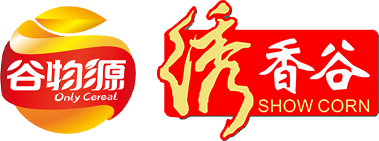The word "Dragon Boat Festival" first appeared in the "Fengtu Ji" of the Western Jin Dynasty: "The Midsummer Dragon Boat Festival is the 5th of May, and it is the same as the summer solstice." End, ancient Chinese has the meaning of beginning and beginning, called "end five" or "beginning five". "Shuowen Jiezi": "Duan, the topic of the beginning of things" means that Duan is the beginning, so the fifth day of May is called "Duan Wujie". "At the age of Guangji" said: "The dust people in Jingshi City take the first day of May as the first day, the second day as the second day, and the number even five is the end five." The ancients used to call the first few days of May by the end respectively. Therefore, the first day of the fifth (noon) month is called the Dragon Boat Festival.
The Dragon Boat Festival is a mixture of various folk customs such as avoiding evil and epidemic prevention. Therefore, later generations believe that the Dragon Boat Festival is a festival set up by the ancients to "avoid evil and epidemic prevention. Chinese culture has a long history and is extensive and profound. Ancient festivals are an important carrier of traditional culture. The formation of ancient festivals contains profound and rich cultural connotations. Ancient festivals attach importance to ancestral deity beliefs and sacrificial activities. Ancestral deity beliefs are the core of ancient traditional festivals, it is the misunderstanding of the cultural connotation of ancient festivals in later generations. Ancestor worship not only covers all the ancient Chinese traditional festivals, but also the eternal theme of Chinese folk festivals. Regarding the blessings of the Dragon Boat Festival, most folklorists believe that it is after the Dragon Boat Festival that the commemoration of legendary historical figures is attached to the festival and the festival is given other meanings, but these meanings are only part of the Dragon Boat Festival. Many ancient poems depict the festive atmosphere of the Dragon Boat Festival. Since ancient times, the Dragon Boat Festival has been a festive day for eating rice dumplings and picking dragon boats. The lively dragon boat performances and happy food banquets during the ancient Dragon Boat Festival are all manifestations of celebrating the festival. Happy Dragon Boat Festival is the tradition. The Dragon Boat Festival is a good day. According to "Jing Chu Shi Ji": Because of climbing high in midsummer, Shunyang is on the top. May is midsummer. Its first noon day is the day when climbing high and Shunyang has good weather.
Among the traditional festivals, there are many and complicated folk customs, or only the Dragon Boat Festival can be compared with the Spring Festival. Both festivals have etiquette and custom themes such as praying for blessings and disaster relief, which place people's desire to welcome blessings, ward off evil spirits and eliminate disasters. The Dragon Boat Festival has mixed up a variety of folk customs in the historical development and evolution. There are many customs of the Dragon Boat Festival, with various forms, rich and colorful contents, and lively and festive. There are differences in the content or details of customs due to different regional cultures throughout the country. The Dragon Boat Festival customs mainly include picking dragon boats, offering sacrifices to dragons, picking herbs, hanging wormwood and calamus, worshiping gods and ancestors, washing herbal water, hitting noon water, soaking dragon boat water, eating rice dumplings, putting paper kites, watching dragon boats, tying five-color silk threads, fumigating Atractylodes, wearing sachets, etc. The dragon boat activity is very popular in the coastal area of southern China. After it was spread abroad, it was deeply loved by people of all countries and formed an international competition. The custom of eating rice dumplings during the Dragon Boat Festival has been popular in all parts of China since ancient times, and has become one of the most influential and widely covered folk food customs of the Chinese nation. During the Dragon Boat Festival, traditional folk activities can not only enrich the spiritual and cultural life of the masses, but also inherit and carry forward the traditional culture. As an important part of Chinese traditional culture, Dragon Boat Festival culture reflects the long history, broad and profound Chinese culture. The Dragon Boat Festival culture has a wide influence in the world, and some countries and regions in the world also have activities to celebrate the Dragon Boat Festival.

